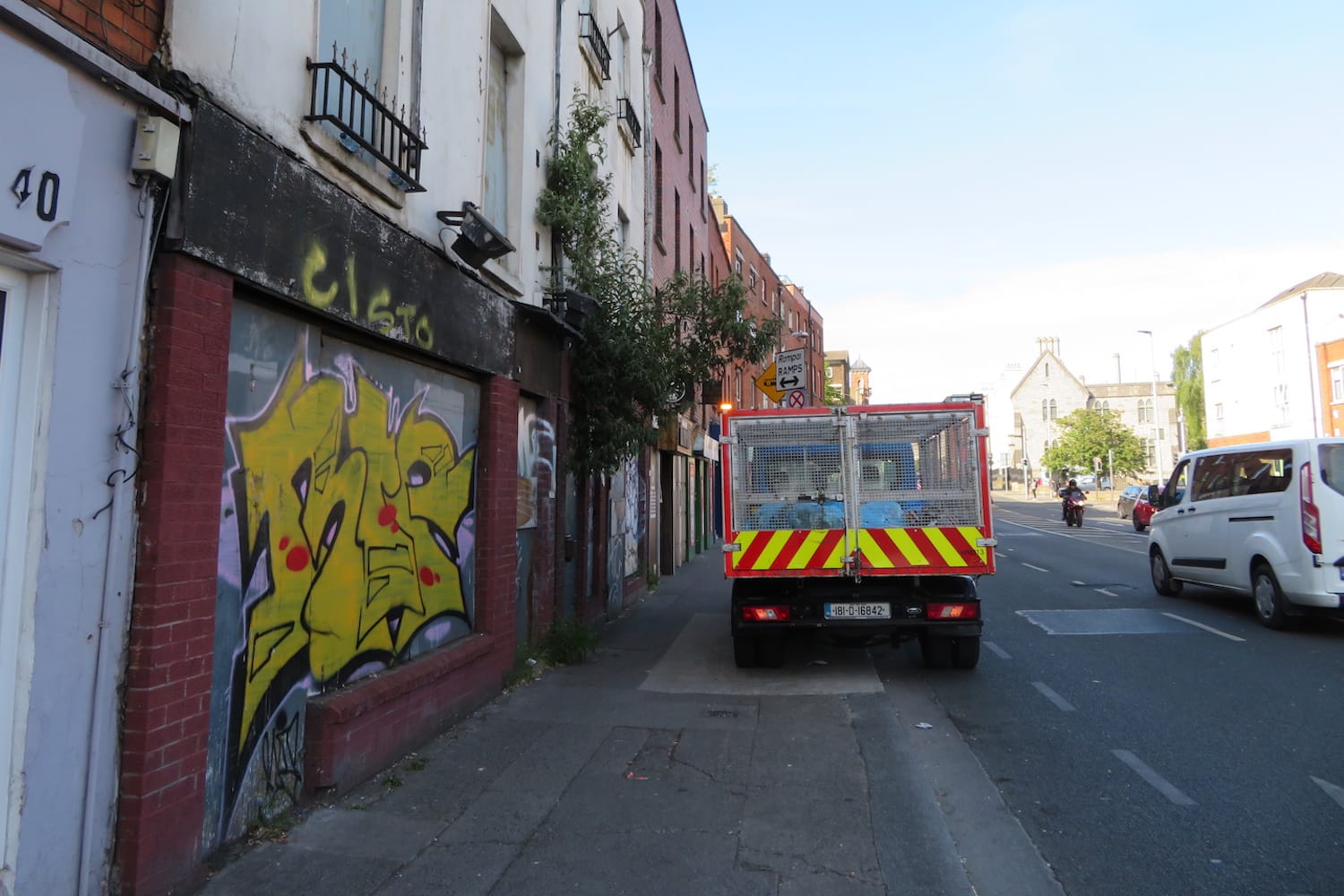What’s the best way to tell area residents about plans for a new asylum shelter nearby?
The government should tell communities directly about plans for new asylum shelters, some activists and politicians say.
In 2019, Dublin City Council quietly dropped 38 and 39 Bolton Street from its reports on plans for social housing.

Susan Leahy casts her mind back to her 1970s childhood, when her favourite activity was helping her grandmother in her grocery shop. “I loved being in there,” she says.
Her grandparents ran Leahy’s Stores at 38 Bolton Street. She remembers a bustling shopping street at a time when most of the business owners lived above their stores.
She knows that her memories might be tinted by nostalgia, she says.
But the Caffola family ran the chipper, the pub was there, the O’Neills had a bakery and the Carolls ran a newsagents, as she recalls.
“It was a proper vibrant street and the whole block was intact,” she says. “It was the way town could still be.”
Today though, 38 Bolton Street is in bits. It is sad to see it going derelict, says Leahy. “There is tons of potential.”
Dublin City Council owns the building now, and the one next door, 39 Bolton Street.
Together they used to be homeless accommodation, which the council closed around 10 years ago. Housing activists briefly occupied the buildings in 2015.
For years, the council said that the housing charity Novas Initiatives was going to develop the buildings. But a spokesperson for the charity said last week that it is no longer involved with them.
By November 2019, the council had dropped 38 and 39 Bolton Street from its list of sites that it is developing for social housing.
On a recent Friday, nature was reclaiming the building.
The windows of 38 and 39 Bolton Street were boarded up with metal sheets, the front of the ground floor were covered in graffiti and bushes were growing out of the walls.
In July 2015, a council spokesperson had said that the council had closed the hostel there three years previously. “It was not fit for purpose,” they said.
In December 2014, the housing charity Novas applied for planning permission to build eight social homes, but the application was declared invalid.
Then in 2015, housing activists moved in and squatted the building and invited homeless people needing emergency accommodation to stay there.
The council took two of the activists to court, though, saying they were trespassers, and they all moved out, leaving it vacant again.
The council said in court that the housing activists were getting in the way of their plans to provide homes there.
For years, the building was included in the council’s housing-supply reports, which are monthly updates for councillors laying out the detail of progress on plans for new social homes in the city.
According to those reports, in December 2016 the housing charity Novas was at the preliminary stage of developing homes there.
By December 2017 the Department of Housing had issued stage 1 approval for funding, one of the early steps on its approvals process.
In August 2018, the council saidthat Novas was going to submit a planning application shortly.
By December 2018,the Department of Housing had approved a funding application and consultants had been appointed. The project was due to be completed in 2019, said a housing supply report.
Then in February 2019 the council managers proposed that the council transfer ownership of the site to Novas to build homeless accommodation with eight rooms, including four en suites.
It is not clear when exactly the plan changed from homes to a hostel. But in October 2019, the council reportsaid: “Proposal submitted to DHPLG to reconsider current design”, using the acronym for the Department of Housing, Planning and Local Government.

Then by November 2019, the address on Bolton Street had disappeared altogether from the housing supply reports.
The spokesperson for Novas didn’t respond to follow-up questions sent Friday about why the charity pulled out.
Dublin City Council didn’t respond to questions submitted last Thursday about its current plans for the building and why the previous plans didn’t proceed.
In 2016, the outgoing director of the Dublin Region Housing Executive, Cathal Morgan, said that delays in developing the buildings were partly caused by the fact that they are historically significant. “Part of the concern is, it does have heritage value.”
In 2018 the Novas spokesperson also indicated that the redevelopment was complicated because the building, while not on the record of protected structures, did require a conservation approach.
Leahy says she just wishes the council would do something with the building, anything, rather than letting it sink into dereliction.
Bolton Street is very significant in terms of its architectural heritage, says Leahy, who is an architect. “The street is really the mirror image of Wexford Street or Aungier Street,” she says.
Get our latest headlines in one of them, and recommendations for things to do in Dublin in the other.